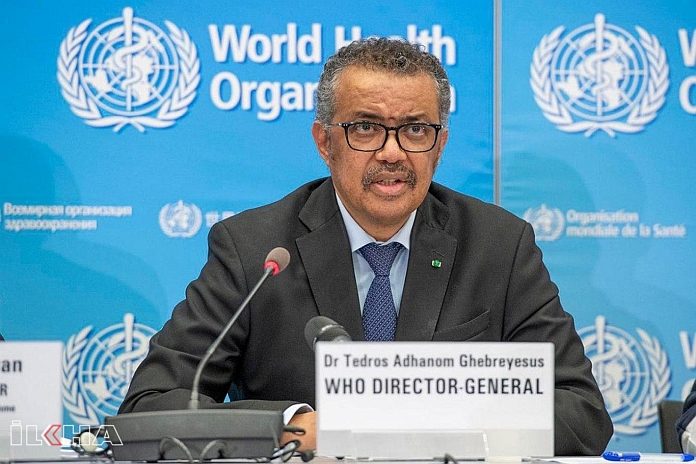By Caribbean News Global ![]()
GENEVA, Switzerland — Speaking at a press conference in Geneva, Dr Tedros Adhanom Ghebreyesus, director-general of the World Health Organization (WHO) announced that WHO is issuing guidance and criteria to help countries decide whether to recommend the use of medical and non-medical masks to prevent the spread of COVID-19.
“First and foremost, medical masks must be prioritized for health workers on the front lines of the response,” he said, expressing concern that the mass use of medical masks by the general population could exacerbate the global shortage for people who need them most. “In some places, these shortages are putting health workers in real danger.”
In healthcare facilities, WHO continues to recommend the use of medical masks, respirators and other personal protective equipment for health workers. In the community, it recommends the use of medical masks by people who are sick and those caring for a sick person at home.
He said countries could consider using masks in communities where other measures such as cleaning hands and physical distancing are more difficult to achieve because of lack of water or cramped living conditions. Masks, if worn, must be used safely and WHO has guidance on how to put on, take off and dispose of masks.
What is clear is that there is limited research in this area. He encouraged countries considering the use of masks for the general population to study their effectiveness. “Mask or no mask, there are proven things all of us can do to protect ourselves and others -– keep your distance, clean your hands, cough or sneeze into your elbow, and avoid touching your face.”
WHO’s strategic objectives for this response are to:
- Interrupt human-to-human transmission including reducing secondary infections among close contacts and health care workers, preventing transmission amplification events, and preventing further international spread*;
- Identify, isolate and care for patients early, including providing optimized care for infected patients;
- Identify and reduce transmission from the animal source;
- Address crucial unknowns regarding clinical severity, extent of transmission and infection, treatment options, and accelerate the development of diagnostics, therapeutics and vaccines;
- Communicate critical risk and event information to all communities and counter misinformation;
- Minimize social and economic impact through multisectoral partnerships.
This can be achieved through a combination of public health measures, such as rapid identification, diagnosis and management of the cases, identification and follow up of the contacts, infection prevention and control in health care settings, implementation of health measures for travelers, awareness-raising in the population and risk communication.
WHO director-general opening remarks at the media briefing on COVID-19 – April 3, 2020, said: “The best way for countries to end restrictions and ease their economic effects is to attack the virus, with the aggressive and comprehensive package of measures that we have spoken about many times before: find, test, isolate and treat every case, and trace every contact.”
He continued: “If countries rush to lift restrictions too quickly, the virus could resurge and the economic impact could be even more severe and prolonged. Financing the health response is, therefore, an essential investment not just in saving lives, but in the longer-term social and economic recovery.
“There are three main areas for countries to focus on: First, we call on all countries to ensure core public health measures are fully funded, including case-finding, testing, contact tracing, collecting data, and communication and information campaigns.
“Second, we also call on countries and partners to strengthen the foundations of health systems. That means health workers must be paid their salaries, and health facilities need a reliable supply of funding to purchase essential medical supplies. Third, we call on all countries to remove financial barriers to care,” said director Ghebreyesus.
“If people delay or forego care because they can’t afford it, they not only harm themselves, they make the pandemic harder to control and put society at risk,” he said.





